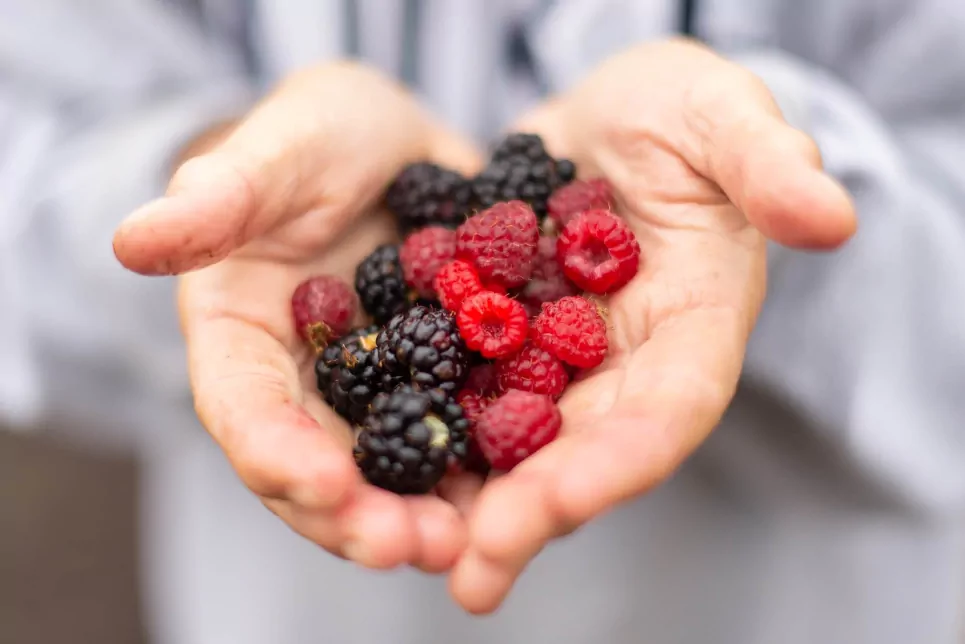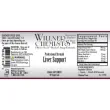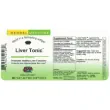Fighting Liver Disease With Flavonoids: The Complete Guide

Key Takeaways
Flavonoids' benefits for liver health:- Antioxidant Properties: Combat oxidative stress and inflammation in the liver.
- Subclasses Variety: Different flavonoids offer unique benefits for liver protection.
- Dietary Sources: Encourages incorporating flavonoid-rich foods like berries and green tea.
- Research Potential: Ongoing studies aim to further understand flavonoids' hepatoprotective effects.
Article by Arnie Gitomer Sep 5, 2023
Are you looking for a natural way to fight liver disease? Look no further than flavonoids. Flavonoids are plant compounds that have been shown to have numerous health benefits, including anti-inflammatory and antioxidant properties, which makes them ideal for fighting liver disease.This comprehensive guide will explore the science behind these plant compounds, how they benefit human health, and their role in preventing serious health concerns. If you want to learn how flavonoids can help you fight liver disease naturally, keep reading!
Understanding Flavonoids: A Brief Overview
Flavonoids can be found in various fruits, vegetables, and beverages, making them easily accessible through our daily diet. One of the critical attributes of flavonoids is their antioxidant and anti-inflammatory properties, which contribute significantly to their health-promoting effects. These compounds are classified into different subclasses, each with its unique characteristics and mechanisms of action.Adding these plant compounds to our diet is essential for maintaining optimal health. Their consumption has been linked to a lower risk of chronic diseases such as heart disease, diabetes mellitus, and certain types of cancer. For instance, anthocyanins, a variety of flavonoid found in berries, pears, and black tea, have been associated with a reduced risk of cardiovascular diseases, hypertension, and dementia.
Quercetin, another widely-studied flavonoid in foods like legumes, onions, and apples, exhibits anti-diabetic and anti-inflammatory effects, making it beneficial for individuals with diabetes and other metabolic disorders.
The Chemistry Behind Flavonoids
From a nutritional standpoint, the consumption of dietary flavonoids has been linked to a wide range of beneficial effects on human health. Flavonoids exhibit antioxidant activity, which helps neutralize harmful free radicals and reduce oxidative stress. Some specific flavonoids, like anthocyanin and quercetin, have been shown to have potential health benefits, such as reducing the risk of hypertension, improving glucose metabolism, and lowering the risk of dementia.It's important to note that the amount of flavonoids present in different foods can vary significantly, and you may not absorb the full amount of plant compounds in your food.
Flavonoid Subclasses and Their Unique Characteristics
Flavonoid subclasses, including flavonols, flavones, and flavanones, each offer unique health benefits. Flavonols, commonly found in foods like onions and kale, are known for their potent antioxidant activity and potential to reduce the risk of chronic diseases such as cardiovascular disease and neurodegenerative disorders.On the other hand, flavanones, abundant in citrus fruits, have been associated with a lower risk of cardiovascular disease due to their ability to improve heart health and reduce hypertension. Flavones, found in herbs like parsley, have shown anti-inflammatory effects, making them potentially beneficial in managing inflammation-related conditions.
It's important to note that the specific amount of flavonoids needed to achieve health benefits is still being researched. However, incorporating various flavonoid-rich foods into your diet, such as berries, pears, soybeans, and legumes, can contribute to a more balanced and nutritious eating plan.
Flavonoids and Liver Disease
Research has shown that these flavonoids can benefit the liver due to their antioxidant and anti-inflammatory properties. These bioactive compounds may help protect liver cells from damage by reducing oxidative stress and inflammation. Certain types of bioactive compounds, such as anthocyanin and quercetin, have been studied for their potential hepatoprotective effects.One study found that higher dietary intake of flavonoids was associated with a lower risk of non-alcoholic fatty liver disease (NAFLD), a condition characterized by fat accumulation in the liver. Another study showed that a high intake of flavonoid-rich foods, such as legumes, pears, and black tea, was associated with a lower risk of chronic liver disease.
While the research on bioactive compounds and liver disease is promising, it's important to note that more studies are needed to understand the mechanisms and potential benefits fully. Additionally, it's always recommended to consult with a healthcare professional before significantly changing your diet or taking supplements.
Metabolism and Bioavailability of Flavonoids: An In-depth Look
Understanding how flavonoids are metabolized in the body is essential for unlocking their full therapeutic potential. When consumed, flavonoids undergo various metabolic processes, including absorption, distribution, metabolism, and excretion.Different types of flavonoids can affect liver health in distinct ways. For instance, flavan-3-ols found in foods like green tea and cocoa have been shown to exhibit antioxidant activity and may protect against liver diseases such as non-alcoholic fatty liver disease (NAFLD). On the other hand, anthocyanins, which give berries their vibrant colors, have been associated with a lower risk of developing liver cancer.
Several factors can influence the bioavailability of flavonoids. The gut microbiome, for example, plays a crucial role in the metabolism and absorption of these compounds. Additionally, the food sources of flavonoids can impact their bioavailability. One great tip is to try consuming flavonoids alongside certain nutrients, such as vitamin C, which can enhance their absorption.
Supplementing with flavonoids has also shown promise in preventing and treating liver diseases. However, it's important to note that the effectiveness of supplements may vary based on the specific dose and formulation. Further research is needed to determine the optimal dosage and duration of supplementation for liver disease prevention and treatment.
How to Incorporate Flavonoids into Your Diet: Practical Tips
Incorporating flavonoids into your diet can be a simple and enjoyable process since you have so many food options. The first step is understanding the benefits of flavonoids for liver health and overall well-being.You can start by identifying foods high in these bioactive compounds, such as berries, green tea, and citrus fruits. These natural sources are delicious and packed with antioxidant activity, thanks to compounds like anthocyanins and quercetin.
To make incorporating these foods into your daily diet easier, you can get creative with recipes and meal plans. For example, you can add berries to your morning oatmeal or incorporate them into a refreshing smoothie. Green tea can be enjoyed as a beverage or used as a base for flavorful iced teas, and citrus fruits can be used in salads, desserts or enjoyed as a snack.
In addition to food, you may also consider taking supplements or extracts to increase your flavonoid intake. However, it is important to remember that these supplements should not replace a balanced diet. They should only be used as a complement to a healthy lifestyle.
What is the Future of Flavonoid Research?
The future of flavonoid research holds great promise. Ongoing studies are exploring the potential health benefits of these compounds, particularly in preventing chronic diseases like cancer and cardiovascular disease.Researchers are also investigating specific types of flavonoids for their therapeutic effects and role in brain function and cognitive decline.
As with any kind of healthcare belief, it is important to give the research time to fully develop and mature before you rely on it too heavily. If you are at risk of liver disease or are treating it, don't jump headfirst into this treatment option. Discuss it with your healthcare professional to see what they think regarding your specific situation.
Conclusion
Flavonoids have shown great promise in promoting human health and fighting against various diseases. Their anti-inflammatory and antioxidant properties make them powerful allies in maintaining heart health and preventing cancer.This is also something that may prove to be a possible option in fighting liver disease. However, it is important to note that while bioactive compounds are generally safe, certain individuals may experience side effects or interactions with medications.
As research on flavonoids continues, we can expect to uncover even more benefits and applications for these amazing compounds. To try this treatment out for yourself, you need to find the most reliable and high-quality supplements available. Try one of our options from Willner Chemists after getting the go-ahead from your doctor.
 |
Read more about Arnie Gitomer |
Product Search Results

|
Liver Health Herbal | Natural Factors | $23.96 | 43249 |

|
Liver Support Af | Willner Phyto Tech | $12.72 | 56971 |

|
Liver Support Stand | Willner Phyto Tech | $24.64 | 57048 |

|
Liver Support vCap | Willner Phyto Tech | $16.08 | 67454 |

|
Liver Tonic | Herbs Etc | $28.88 | 40835 |
